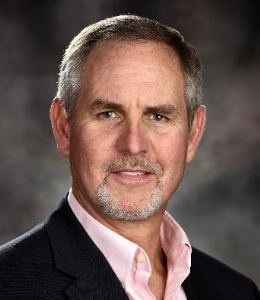National Toxicology Program Gets New Associate Director
Brian Berridge is NTP's new associate director. Formerly of GlaxoSmithKline, he will oversee day-to-day operations as NTP coordinates toxicology research and testing across nine different federal agencies, including the National Institutes of Health, the U.S. Food and Drug Administration, and CDC.
The National Toxicology Program (NTP) has named Brian Berridge, D.V.M., Ph.D., as its new associate director. Formerly of GlaxoSmithKline, he will oversee day-to-day operations as NTP coordinates toxicology research and testing across nine different federal agencies, including the National Institutes of Health, the U.S. Food and Drug Administration, and CDC. Berridge is replacing John Bucher, Ph.D., who had served as associate director since 2007 and plans to continue with NTP as a senior scientist, according to NIH's Jan. 12 announcement.
 Berridge will take over guidance of NTP products such as the congressionally mandated Report on Carcinogens, which currently lists 248 cancer-causing agents, and scientific literature reviews on topics such as fluoride that are nominated to NTP by other agencies or the public. He will also help oversee toxicological studies on topics such as chemical spills and cell phones.
Berridge will take over guidance of NTP products such as the congressionally mandated Report on Carcinogens, which currently lists 248 cancer-causing agents, and scientific literature reviews on topics such as fluoride that are nominated to NTP by other agencies or the public. He will also help oversee toxicological studies on topics such as chemical spills and cell phones.
Since 1978, NTP has evaluated more than 2,800 chemicals and other agents for health-related effects. NTP is headquartered at the National Institute of Environmental Health Sciences, which is part of NIH.
"We are thrilled that Dr. Berridge is bringing his expertise to environmental health, including experience with both traditional and novel toxicological methods," said Linda Birnbaum, Ph.D., who has been the director of NTP since 2009, while also directing NIEHS. "We are also deeply appreciative of Dr. Bucher's exemplary leadership for the past decade."
Berridge is a veterinary pathologist with expertise in cardiovascular toxicology; he came to NTP after spending five years directing worldwide animal research strategy at GlaxoSmithKline. The announcement said he "will now help NTP select optimal ways to determine the safety of chemical compounds in the environment [and as] a member of the Scientific Advisory Committee on Alternative Toxicological Methods, he has already been advising NTP in this capacity since 2015."
He said he wants "to help NTP take the detailed mechanistic data generated by methods like high-throughput toxicology screening and understand what that means to a patient, a person, a population."